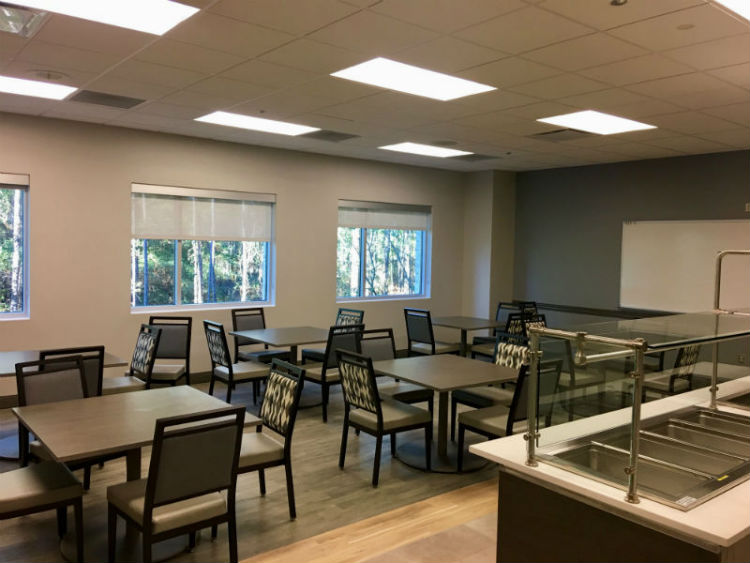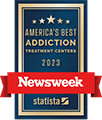Understanding Vicodin Addiction
Learn About Vicodin Abuse & Addiction
Vicodin is an opioid painkiller that is a combination of both hydrocodone and acetaminophen. Acetaminophen is not an addictive substance, however, when it is mixed with hydrocodone (a narcotic painkiller), it grows highly potent and the effects of it can become increasingly addictive.
Vicodin is often prescribed to those who are in need of relieving moderate to severe physical pain. The central nervous system is depressed when this pain medication is used and causes users to feel relief from their pain all while bringing about feelings of relaxation, contentment, and wellbeing. In many cases, the use of Vicodin can cause individuals to feel detached from their surroundings. Because of these many effects, numerous individuals find the use of Vicodin appealing, and they begin using it in greater quantities and/or more frequently than prescribed. Those who are not prescribed Vicodin also find this medication attractive and begin using it illegally and without a prescription. While it does not matter why an individual is using Vicodin, it is important to know that it is a painkiller that can cause addiction to develop at an alarmingly fast pace. As soon as individuals begin abusing this substance, and their ability to function becomes hindered as a result, it is likely that they have developed Vicodin use disorder. Fortunately, treatment options are available for Vicodin abuse.
Statistics
Statistics of Vicodin Abuse
One of the most commonly prescribed pain medications within the country, roughly 139 million prescriptions for Vicodin were written in 2010 alone, according to the National Center for Biotechnology. This statistic helps show just how prevalent this medication is within society, as well as how accessible it is to the public. It is said that the abuse of Vicodin has quadrupled over the past ten years.
Causes & Risk Factors
Causes & Risk Factors of Vicodin Abuse
The causes and risk factors connected to the abuse of a painkiller like Vicodin can include:
Genetic: Hereditary influences can play a major role in determining if an individual is more likely to develop Vicodin use disorder. When individuals share a family history of opioid abuse and addiction, they are much more vulnerable to battling similar issues than are those who do not share this background. The American Psychiatric Association (APA) reports that the presence of specific personality characteristics, including impulsivity and novelty-seeking, can be genetically influenced.
Risk Factors:
- Having easy access to obtaining Vicodin
- Suffering from a condition that warrants the prescribing of Vicodin
- Family history of Vicodin abuse or addiction
- Personal history of abusing other substances
- Having an impulsive temperament
- Being in an environment where Vicodin or other substances are used
- Family history of other types of drug or alcohol abuse
- Having a novelty-seeking personality
Signs & Symptoms
Signs & Symptoms of Vicodin Abuse
When individuals are struggling with Vicodin abuse, they will display certain symptoms, however, those symptoms will vary from person to person. Some of the potential signs and symptoms that an individual might display when struggling with Vicodin use disorder can include:
Behavioral symptoms:
- Slurred speech
- Using Vicodin in dangerous situations, such as driving while high
- Frequent absences from work or school
- Visiting multiple doctors so that multiple Vicodin prescriptions can be obtained
- No longer taking care of responsibilities at home
- No longer performing to the expected standard at work
- No longer engaging in activities or hobbies that were once considered important or significant
- Compulsive, prolonged use of Vicodin, despite attempts to stop
- No longer spending time with friends and family members
Physical symptoms:
- Insomnia
- Psychomotor agitation or retardation
- Drowsiness
- Constricted pupils
Cognitive symptoms:
- Suicidal ideation
- Overwhelming cravings for Vicodin
- Concentration difficulties
- Attention difficulties
- Memory disturbances
- Impaired judgment
Psychosocial symptoms:
- Dysregulation of mood
- Feelings of euphoria followed by a state of apathy
- No longer finding interest in things once interested in
- Depression
Co-Occurring Disorders
Vicodin Abuse & Co-Occurring Disorders
The continued, untreated abuse of Vicodin can cause individuals to suffer from a number of negative consequences throughout all parts of their lives. Some of the effects that can develop because of this abuse can include:
- Impaired visual acuity
- Onset of new, or worsening of current, mental illness symptoms
- Destroyed marriages or partnerships
- Social withdrawal and isolation
- Liver damage
- Dry nose and mouth
- Decline in occupational performance, possibly resulting in demotion, job loss, or chronic unemployment
- Suicidal behaviors
- Decreased gastrointestinal activity
- Financial turmoil
- Anoxia, or suffering from an oxygen deficiency in the body’s tissues
- Suicidal ideation
Those who struggle with the desire to keep abusing Vicodin put themselves at risk for suffering from the symptoms of other mental health conditions simultaneously. Some of these disorders that can co-occur with Vicodin use disorder can include:
- Tobacco use disorder
- Stimulant use disorder
- Alcohol use disorder
- Other substance use disorders
- Persistent depressive disorder
- Posttraumatic stress disorder (PTSD)
- Major depressive disorder
Effects of Withdrawal & Overdose
Effects of Withdrawal & Overdose From Vicodin
Effects of Vicodin withdrawal: When someone is abusing Vicodin and suddenly stops his or her use, painful and uncomfortable withdrawal symptoms can develop. The period of withdrawal occurs when an individual’s body is trying to adjust to no longer having this substance in its system. Vicodin withdrawal can be tough to go through, and can include the following symptoms:
- Dilation of pupils
- Dysphoric mood
- Muscle aching
- Vomiting
- Diarrhea
- Sweating
- Nausea
- Chronic flowing of tears
- Yawning
- Fever
- Insomnia
Effects of Vicodin overdose: Consuming more Vicodin than the body can handle can lead to an overdose. Since Vicodin is a substance that can cause dependence to develop, individuals will continue to increase the amount of Vicodin they are taking to obtain the desired effects. With this increase comes a rise in overdose potential, as individuals might not be aware of how much they have consumed. If an overdose occurs, it should be treated as a medical emergency. Symptoms of a Vicodin overdose can include:
- Seizures
- Cold, clammy skin
- Dizziness
- Sleepiness
- Alterations in speech patterns
- Labored breathing
- Confusion
- Headaches













